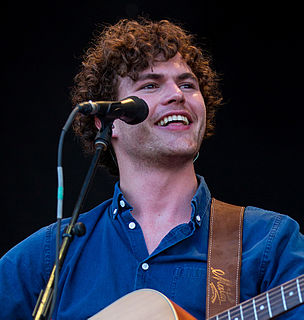A Quote by Ansel Adams
All I can do in my writing is to stimulate a certain amount of thought, clarify some technical facts and date my work. But when I preach sharpness, brilliancy, scale, etc., I am just mouthing words, because no words can really describe those terms and qualities it takes the actual print to say, “here it is.
Related Quotes
I can get by and chatter and talk and tell funny stories, make people laugh, but I don't have as many words, I don't have the vocabulary. I think if I forced myself to read in Spanish - you know, I always say I'm going to, but I lose my patience reading in Spanish, because I really do read the way a third grader does, mouthing the words. That takes a long time!
Yes, I think I use the term radical rather loosely, just for emphasis. If you describe yourself as atheist some people will say, Don't you mean agnostic? I have to reply that I really do mean atheist, I really do not believe that there is a god; in fact, I am convinced that there is not a god (a subtle difference). I see not a shred of evidence to suggest that there is one...etc., etc. It's easier to say that I am a radical atheist, just to signal that I really mean it, have thought about it a great deal and that it's an opinion I hold seriously.
One reason writers write is out of revenge. Life hurts; certain ideas and experiences hurt; one wants to clarify, to set out illuminations, to replay the old bad scenes and get the Treppenworte said -- the words one didn't have the strength or ripeness to say when those words were necessary for one's dignity or survival.
There are some people that aren't into all the words. There are some people who would have you not use certain words. Yeah, there are 400,000 words in the English language, and there are seven of them that you can't say on television. What a ratio that is. 399,993 to seven. They must really be bad. They'd have to be outrageous, to be separated from a group that large. All of you over here, you seven. Bad words. That's what they told us they were, remember? 'That's a bad word.' You know bad words. Bad thoughts. Bad intentions.
On a more technical level, a story takes a lot of words. And to generate words and phrases and images and so on, that will compel the reader to continue reading - that stand a chance of really grabbing a reader - the writer has to work out of a place of, let's say, familiarity and affection. The matrix of the story has to be made out of stuff the writer really knows about and likes. The writer can't be stretching and (purely) inventing all the time. Well, I can't, anyway.
I always say that I'm an artist who works with pictures and words, so I think that the different aspects of my activity, whether it's writing criticism, or doing visual work that incorporates writing, or teaching, or curating, is all of a single cloth, and I don't make any separation in terms of those practices.
If you notice phrases, ideas, and anecdotes that closely resemble those that appear elsewhere in my writing, it's not a matter of sloppy editing. I'm repeating myself. I'm reshuffling words in the hope that just once I might say something exactly right. And I'm still wrestling with dilemmas that are not easily resolved or easily dismissed. I run at them again and again because I am not finished with them. Any may never be. Work-in- progress on a life-in-progress is what my writing is about. And some progress in the work is enough to keep it going on.
The English language lacks the words 'to mourn an absence.' For the loss of a parent, grandparent, spouse, child or friend we have all manner of words and phrases, some helpful, some not. Still, we are conditioned to say something, even if it is only 'I am sorry for your loss.' But for an absence, for someone who was never there at all, we are wordless to capture that particular emptiness. For those who deeply want children and are denied them, those missing babies hover like silent, ephemeral shadows over their lives. Who can describe the feel of a tiny hand that is never held?
Most songwriting like poetry takes a careful selection of words. Sometimes you're just channeling something and a selection of words come out that you wouldn't normally say, but you come up with an assortment of words that are really special. It just makes sense even if it's normally how you wouldn't express yourself.
I am not one of those writers that just does songwriting one way. Personally, I think the best song will pop out all at once, because it's this feeling that the words fit the music so cleanly. When you really have a complete thought, and you always yearn for that as a songwriter. You always work for that.




































